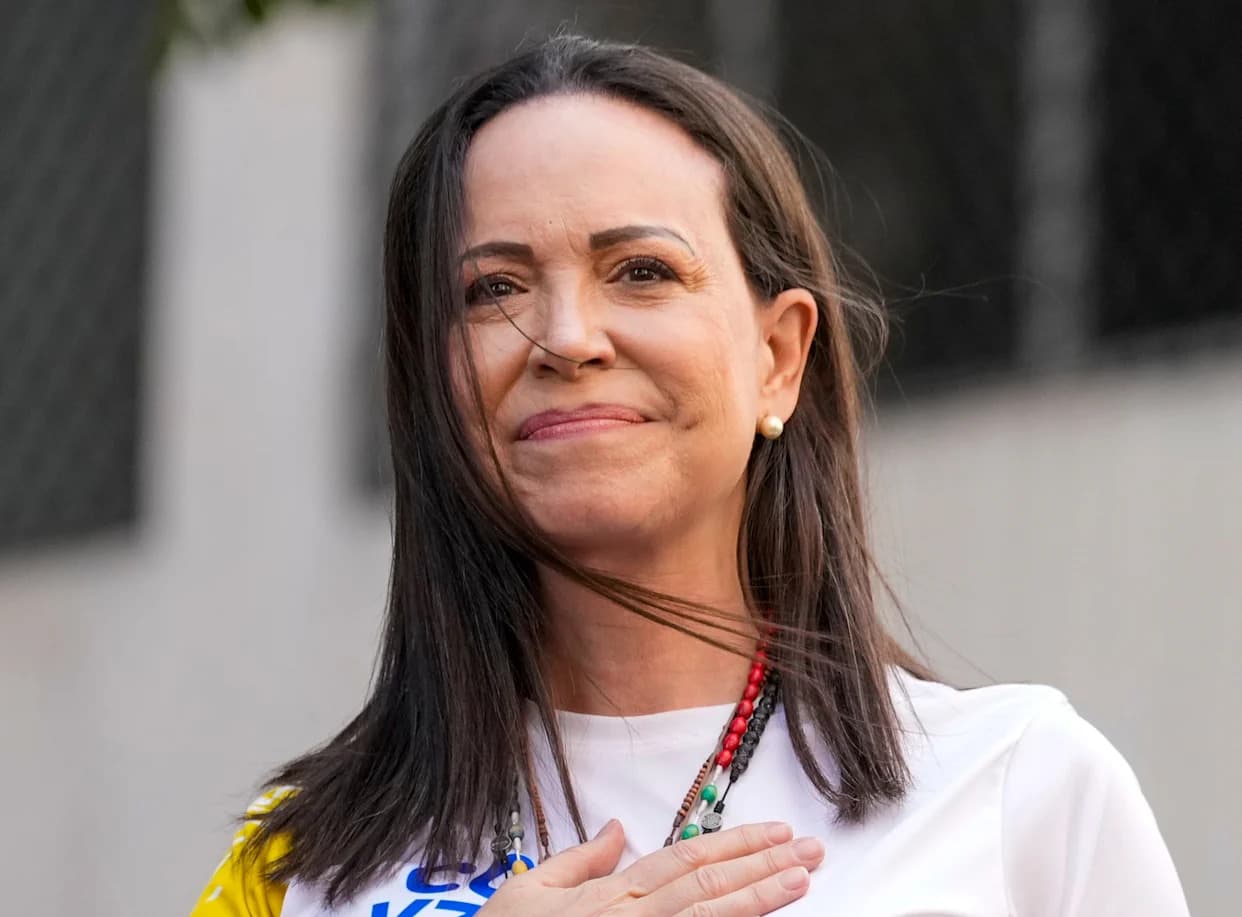María Corina Machado has published a four-page "freedom manifesto," dated November 9, laying out democratic rights and a plan to decentralize power in Venezuela. She read the document in a 15-minute video from an undisclosed location and said President Maduro's hold on power is weakening. The release coincides with a major U.S. military presence — more than a dozen warships and about 15,000 troops — near Venezuela, while both Trump and Maduro have signaled openness to direct talks.
María Corina Machado Releases 'Freedom Manifesto' from Hiding as Maduro Signals Openness to Talks with Trump

María Corina Machado, a prominent Venezuelan opposition leader, has published a four-page "freedom manifesto" dated November 9 that outlines her vision for a post-Maduro Venezuela. The document lays out core democratic rights — including the rights to vote, assemble and speak freely — and calls for decentralizing power from the state back to citizens.
Machado read the manifesto in a 15-minute video recorded at an undisclosed location, declaring that President Nicolás Maduro's grip on power is eroding. She has been in hiding since a disputed election last year in which government-controlled electoral authorities declared Maduro the victor.
Key passages and claims
The manifesto borrows language familiar from other democratic charters. One passage reads:
"Every Venezuelan is born with inalienable rights that have been conferred upon them by our Creator, not by men."Machado urges a return of decision-making to citizens through decentralization and stresses accountability for those she accuses of abuses.
Regional tensions and diplomacy
The release comes amid a significant U.S. military presence off Venezuela's Caribbean coast — reported as more than a dozen warships and roughly 15,000 troops — which the Pentagon says is part of an operation to disrupt drug trafficking. Observers note this is the largest U.S. deployment in the region since the 1989 intervention in Panama.
U.S. officials say President Donald Trump has not ruled out military action but has indicated a possible diplomatic opening. Trump said he would be open to speaking directly with Maduro "at a certain time," suggesting negotiations remain a viable option. Maduro likewise said he would speak directly with any foreign leader who wanted talks, stating on state television that "anyone who wants to talk to Venezuela will talk face to face."
Accusations and response
In her manifesto, Machado accused Maduro of crimes against humanity, alleging torture, killings and enforced disappearances — charges the Venezuelan government has previously denied. Machado has welcomed international pressure and called for legal accountability for human-rights abuses.
The Venezuelan government did not immediately respond to requests for comment. The publication of the manifesto, combined with shifting signals from Washington and Caracas, highlights a volatile moment for Venezuela's political future.
Help us improve.


































